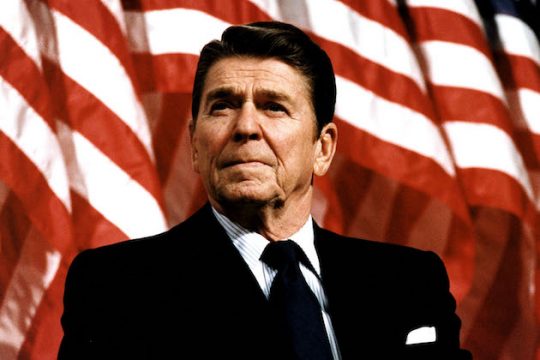Over at the Claremont Review of Books, I have a review of Laurence Jurdem's evenhanded and comprehensive study Paving the Way for Reagan. It's a look at three conservative periodicals—Human Events, National Review, and Commentary—and how they influenced the development of Ronald Reagan's worldview. Here's the lead:
Ever since Herbert Croly and Walter Lippmann founded the New Republic in 1914 to guide the ascendant Progressive administration of Woodrow Wilson, journals of political opinion have come to be associated with presidents of similar ideological bent. During Bill Clinton’s two terms the New Republic became known as "the in-flight magazine of Air Force One." President George W. Bush had the Weekly Standard. President Obama sat for long, discursive interviews with the Atlantic. The Trump White House is thought to be influenced by the journal you’re reading now. Publications such as these supply historical and intellectual context, public policy suggestions, and even personnel to elected officials who must navigate a bewildering, hostile rush of events.
Historian Laurence Jurdem has written a fair-minded analysis of the political influence of three such journals: Human Events, National Review, and Commentary. "Between 1964 and 1980," Jurdem argues, "by providing an ideological perspective on important national issues, the publications of conservative opinion played a fundamental role in reviving the political fortunes of the American Right, culminating in the election of Ronald Reagan."
Through close readings of these magazines, and by examining their positions on such issues as arms control, multilateralism, the opening to China, the Panama Canal treaties, the Middle Eastern oil embargo, and the Iran hostage crisis, Jurdem describes a consistency of thought and prescription that, in his view, shaped Republican foreign policy. "[T]he ideological consistency with which these publications presented their arguments," he concludes, "played a critical role in the development of the 1980 GOP agenda."
Maybe. What Jurdem proves without a doubt is the critical role Human Events, National Review, and Commentary played on the worldview of Ronald Reagan. What is more difficult to discern is their influence on GOP foreign policy in general—or even on Reagan’s foreign policy itself. Although small-circulation journals of ideas may help define the climate of opinion in a given era, intellectuals are often shocked by how difficult it is for even their friends to implement policies they would like.
I hope you will read the rest, which can be found at this link. Jurdem's book is filled with evidence of why small intellectual magazines matter. They are cauldrons not only of ideas but of personnel. However, these journals also have their limits. No policy agenda survives contact with the federal government fully intact. No White House staff is univocal. And Washington has yet truly to appreciate the role of unpredictability and contingency in America's kludgeocracy. Still, the point is not to change the world entirely. Only to give it a nudge.
